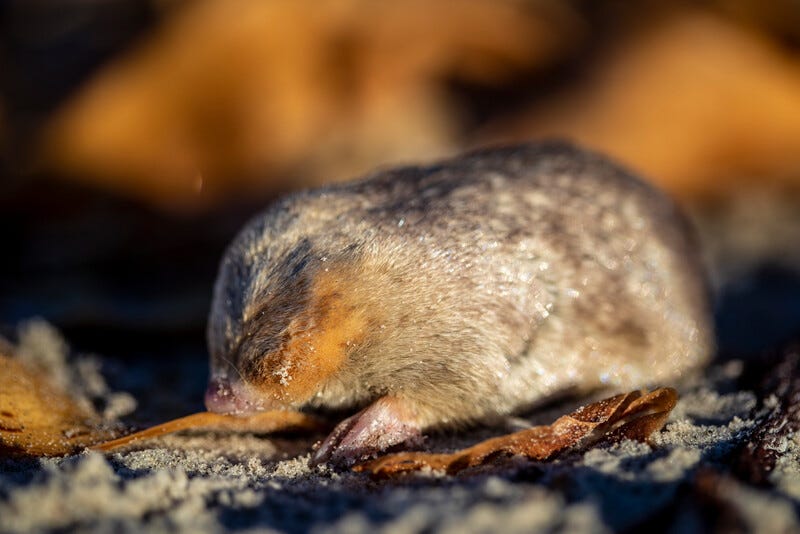Surat has a G7 Problem
Aaj ki taaza khabar includes Venezuela’s crazy plan to annex Guyana, bad news for the diamond industry in Surat & lethal news about overworking. Our fave bit: The BBC anchor flipping off the camera.
If you’re loving splainer, be sure to share us far and wide. It’s what keeps this newsletter free for everyone:) Also: We’d love to hear from you—to share your suggestions, pain points or just to say hi. Write to us at talktous@splainer.in or simply reply to the email you received.
Important to know: Anyone who is still opted-in for our daily emails has been automatically added to the Splainer Lite list. We figured you’d welcome getting some real content as opposed to just a notification about the premium edition:) But if you want to stop hearing from us, hit ‘unsubscribe’ any time you like.
Measuring pain: Why are we so bad at it?
The TLDR: Despite great advances in medicine, we still have no idea how to measure a patient’s pain—which has severe consequences for women. Why is ‘pain’ so difficult to diagnose and treat?
Researched by: Rachel John, Nirmal Bhansali, Aarthi Ramnath & Anannya Parekh
Israel-Palestine War: The latest update
For more context on the Israel-Palestine war, check out our Big Stories on: The motive for the Hamas attack; the effect of civilian casualties on Gaza’s post-war fate; and the deal for a four-day truce.
UN Secretary-General António Guterres invoked Article 99 to force a Security Council meeting on the humanitarian crisis in Gaza—which is very rarely done. But it isn’t clear what the meeting will achieve since the US has a veto.
Israel released evidence that Hamas operates in civilian areas.
But leaked audio of a meeting between released Israeli hostages and PM Benjamin Netanyahu reveals that hostages are being held in the very same places as the ones being bombed by the IDF. You can read some of the intensely angry quotes here—or watch this CNN clip.
In a surprising development, the Israeli military has strongly pushed back against US officials’ suggestions that Hamas is refusing to release women—because it will reveal their sexual violence.
Will Venezuela annex its neighbour?
The context: Venezuela and Guyana have long been fighting over 160,000 square km of land on their shared border. The problem is that the border was drawn as a part of an agreement between Venezuela and the British colonial government in Guyana—back in 1899. Now, Caracas wants to renege on the deal—”after the finding of some 11 billion barrels of recoverable oil and gas off Guyana's coast.” The problem: the disputed land is two-thirds of Guyana!
What happened now: The Venezuelans have voted in favour of reclaiming the land in a referendum. They backed a plan to create a new state—“granting its population Venezuelan citizenship as well as identity cards” President Nicolas Maduro has even pledged oil and mining exploration in the claimed area. So tensions are ratcheting up—even though observers say Maduro is just playing macho in an election year.
Though we doubt it’s much comfort to Guyana—whose GDP increased 62.3% in 2022 thanks to recently discovered oil reserves. Al Jazeera has more on the history of the dispute while BBC News has the latest developments. The Intercept has a good read on how Exxon Mobil has practically taken over the governance of Guyana.
G7 ban hits Indian diamond industry
The Group of 7—which represents the US and its Western allies—will ban imports of polished diamonds made from Russian rough stones. This is terrible news for the Indian diamond industry—which cuts 14 out of 15 of the world’s roughs. And 30% of all imports are from Russia. Also this: “The US accounted for a provisional 36% share of total diamond exports of $22.04 billion from India in FY23.” The ban is intended as yet another punishment of Moscow for its invasion of Ukraine. (Mint)
Indian rice & wheat have a nutrients problem
A new report shows that the staple grains grown in India have increasingly lower amounts of essential nutrients—such as calcium, iron and zinc. For example, the presence of calcium has dipped by 45% in rice—and 30% in wheat—since the 1960s. The reason according to its lead authors: The Green Revolution—which made India self-sufficient in food:
The Green Revolution was focused on increasing yields and breeding varieties that were tolerant or resistant to pests and other stresses — no one cared much about the elemental make-up of the grains.
The solution is to focus on bio-fortifying our grains. Point to note: scientists don’t know the reason why plants are losing their ability to absorb these nutrients from the soil. (The Telegraph)
Bad health news for workaholics
An International Labor Organization study shows that nearly 750,000 people around the world die due to overwork—defined as working more than 55 hours a week. That said, the workplace is way safer than the past—but that office job may come with an invisible price tag. According to ILO’s data, more than 13 million people around the world live with a visual impairment caused by their work. As you can plainly see in the chart below, long work hours are the #1 work-related hazard—by a mile!
Reminder: Narayana Murthy says it’s the patriotic duty of all young Indians to work themselves 70 hours a week. Literally work yourself to death then? (El País)
Not working all that hard? Kids who study at Harvard and Yale. Eighty percent of Yale undergrads received an A or A minus—and the mean grade point average last year was 3.7 out of 4.0. All of which suggests grade inflation—which has been a notorious problem with top tier US schools. It’s very hard to get into these schools—but not so hard to excel once you’re in. But the trend has been accelerating over the past decade. New York Times reports on why Yale students are unhappy about the trend. This 2022 Harvard Crimson piece looks at a related problem: grade compression.
How old is your kidney?
A new study challenges the use of chronological age to assess a person’s health. It found that organs in our body age at different rates—and offer a far better indicator of risk:
For example, those whose heart was “older” than usual had more than twice the risk of heart failure than people with a typically ageing heart. Ageing in the heart was also a strong predictor of heart attack. Similarly, those with a quickly ageing brain were more likely to experience cognitive decline… Extreme ageing in the kidneys was a strong predictor of hypertension and diabetes.
The end goal is to develop a blood test that can help tell doctors the age of your organs. Scientific American has lots more.
A big warning about Meftal
India’s apex pharmaceutical body has issued a warning against consuming the painkiller without a prescription. Meftal is commonly used to treat muscle aches and menstrual cramps. The worry is that it could trigger something called the DRESS syndrome in some patients:
DRESS syndrome (Drug Rash with Eosinophilia and Systemic Symptoms) is a severe allergic reaction affecting around 10% of individuals, potentially deadly and caused by certain medications. It is characterised by fever, skin rash, lymphadenopathy, haematological abnormalities and internal organ involvement and manifests two to eight weeks after the drug has been taken.
Meftal is also sold under the names Mefkind, Mefanorm and Ibuclin P, mefenamic acid. If you take any of these, it’s wisest to be cautious and consult your doctor. (Indian Express)
A $22 million NFL heist
Indian Americans are always in the headlines these days. The latest is Amit Patel—who is accused of stealing more than $22 million from the NFL team Jacksonville Jaguars. The scam involved running up fake bills on the virtual corporate card. We’re quite impressed with what he did with all that money:
The court filing states that Patel “used the proceeds of this scheme, in whole or part, to place bets with online gambling websites; to purchase a condominium in Ponte Vedra Beach, Florida; to pay for personal travel for himself and friends (including chartering private jets and booking luxury hotels and private rental residences); to acquire a new Tesla Model 3 sedan and Nissan pickup truck; to lodge a retainer with a criminal defence law firm; and to purchase cryptocurrency, non-fungible tokens, electronics, sports memorabilia, a country club membership, spa treatments, concerts and sporting event tickets, home furnishings and luxury wrist watches.
That’s a lot of shopping! (The Athletic, paywall and CBS News)
Three things to see
One: Aww, look! It’s a very propah BBC presenter caught giving the middle finger. Well, anchor Maryam Moshiri insists she was actually doing a cheeky version of the countdown with her friends off-camera—“which involved counting down with her fingers and ending with the potentially offensive gesture.” Only the BBC can make flipping off the camera boring. Check out the clip here. (Deadline)
Two: Say hello to De Winton's golden mole—which was thought to have gone extinct in 1936. It has been recently rediscovered in Port Nolloth, South Africa. Fun fact: it was discovered by a group of researchers and a border collie named Jessie—who is actually trained to find golden moles (who knew!). It’s “golden” because of the “oily secretions that lubricate its fur so it can ‘swim’ through sand dunes”. You can see how cute the lil’ animal is below. (The Guardian)
Three: Dan Levy fans rejoice! The dearly beloved David Rose of ‘Schitt's Creek’ fame just dropped the teaser of his directorial debut ‘Good Grief’—which deals with, well, grief. The movie will drop on Netflix on January 5. Watch the trailer here. (Entertainment Weekly)
A list of good reads
Sohini Chattopadhyay in The Guardian has an excellent essay on how running has helped some Indian women reclaim public spaces. (h/t subscriber Udaya Nath)
Also in The Guardian: a fascinating look at the top-secret world of chip flavours.
Hindustan Times has a feature on how air pollution measures have shut down the traditional charcoal tandoor ovens—a cornerstone of food in Delhi.
Associated Press has an important feature on how humans changed the planet to feed a population of 8 billion—and why this is not sustainable.
Article 14 reports on how politically sensitive cases are being shuffled among judges by the “master of the roster”, the Chief Justice of India.
Orion Magazine has a lovely essay on the discovery of a new organ in the human body, and what it tells us about our perceptions and beliefs.
Reuters looks at the importance and risks of deep sea mining in this beautifully illustrated feature.
BBC News uncovers the OG Tinder—created for the Tudors by 16th century painter Hans Holbein the Younger.
The Verge has a deep dive on Saudi Arabia’s latest lucrative venture: taking over the world of video games.
Vanity Fair profiles the founder of ‘The Information’, Jessica Lessin, on how the publication has managed to survive ten years in the present mediascape.
Need an immediate pick-me-up? We have all you need to keep you sane.
One: Gossip girls!
Two: Why ‘persistence’ and ‘panda’ both start with ‘p’.
Three: No effs given.
Email us over at talktous@splainer.in or just hit ‘Reply’ with your comments, suggestions and advice—or to just say hi:) If you are a first time subscriber to splainer: we are delighted to offer you a free month sub to the premium edition—check out everything you are missing:)
Signing up for our premium edition also gives you access to our gorgeous app. Download the iOS or Android version and discover what you’re missing:)
















Perfectly structured